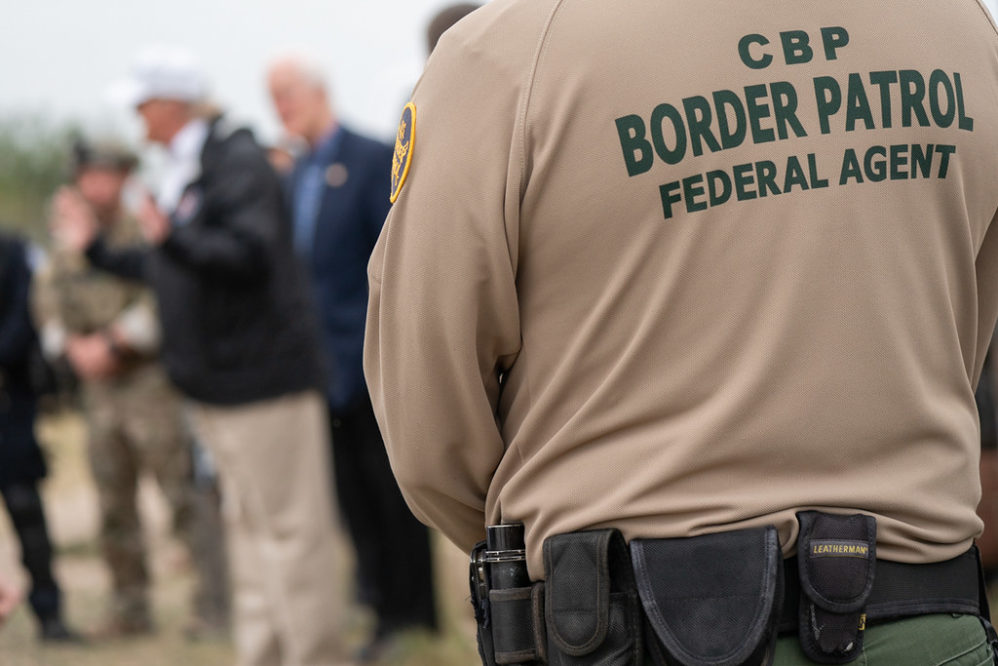
Margot Cleveland’s recent article here in The Federalist asserted Texas Gov. Greg Abbott’s recent executive order barring the transportation of foreign nationals by non-official actors to limit the spread of the Delta variant of COVID-19 was not authorized under constitutional principles or federal law.
Cleveland asserts Abbott’s order is “illegal” because it interfered with federal immigration authority and that its foundation in state public health law was “irrelevant.” Cleveland also contends that “there is nothing [Gov.] Abbott or state and local officials can do about the Biden administration’s complete disregard for the security of our southern border.”
Respectfully, Cleveland’s statements are constitutionally inaccurate, reflect common misunderstandings of the basic principles that anchor our republic, and are arguably negligent from a public safety perspective.
States Are Sovereign Entities
The foundational flaw in this argument is rejecting the dual and mutually supportive concepts of state sovereignty and federalism. Bluntly stated, the American states are sovereign entities, not provinces. Our system is structurally and fundamentally different than virtually almost every other national governmental structure in the world.
Because our states are sovereigns — with their own constitutions, laws, and obligations to their citizens — and not mere appendages of our federal government, they are authorized to wield substantial, non-symbolic power within their own territories. An assertion that states function in a realm of permission-based or symbolic authority is just flat wrong.
State sovereignty, and the voter-based power that grants that sovereignty, is in turn an essential component of federalism, which provides the checks and balances that guard our freedoms. Remember, there are two crucial types of federalism at work in our system: horizontal federalism and vertical federalism. When most Americans talk of federalism, they are likely talking about horizontal federalism, the three branches of the federal government, the legislative, executive, and judicial branches. These coequal branches ostensibly keep each other in check and prevent overreach.
But vertical federalism is just as important as horizontal federalism, if not more so. The same checks-and-balances philosophy behind the three-branch design of our federal government is no less a part of the interaction between state governments and the federal government.
The Founders, who created the federal government to benefit the states, did not think states would just behave like pieces of a centralized government. They fully banked on states jealously guarding their power and pushing back against federal overreach as needed. Indeed, the odds are pretty good that the U.S. Constitution would never have been ratified at all if the states had been told they were voluntarily ceding their states’ powers to a centralized government.
States Can Absolutely Control Their Own Resources
Applied to the situation at hand, state sovereignty and vertical federalism absolutely authorize Abbott and any other governor — Republican, Democrat, or other — to serve their citizens within the boundaries of their state constitutions, laws, and obligations. Here, we have what is state government leadership issuing an instruction to state-funded officials to protect the public health of state citizens in a situation where the federal government has opted out of its obligations to do so.
An assertion that the constitutional doctrine of preemption, which prohibits states from functioning in areas exclusively reserved for federal action, prohibits Abbott’s order is not only inaccurate, but also raises important questions about what happens when the federal government asserts preemptive authority but then abdicates that authority. Call it dormant overreach.
In her article, Cleveland notes the Biden administration’s Department of Justice argued in federal court that Abbott’s order “violates the Supremacy Clause because it disrupts federal immigration operations in Texas.” Most Texans would find that argument somewhat comical in that, by most accounts, there is virtually no immigration enforcement taking place in Texas, or anywhere else along the United States-Mexico border, for that matter. The Biden administration’s argument is the intellectual equivalent of a pilot steering a plane into the ground while preventing someone from trying to rescue the flight by claiming that only the pilot is authorized to fly the plane.
Cleveland also implies that Texas’s most meaningful — or even only — role here is to highlight the hypocrisy of the Biden administration and eventually win some sort of national conversation. She is correct to say that the Biden administration is engaging in rank hypocrisy by unleashing hundreds of thousands of potentially COVID-19-positive foreign nationals on American soil while pushing for new rights-inhibiting restrictions of American citizens.
Nevertheless, it is inaccurate to say that a state’s job in the face of federal abuse is to win a messaging fight but otherwise stand down and wait for federal rescue. This perspective approaches negligent disregard because it is essentially arguing state and local governments have no role in public safety when our federal government is failing to ensure the public’s safety.
The Biden administration’s damaging conduct is obvious to most Americans, but Texas — and other states — are not bystanders in this war for Americans’ safety, security, and primacy. The Constitution is not a suicide pact. The solutions that lay ahead will require more aggressive assertion of state sovereignty, more aggressive state action to protect their citizens, and a more thorough understanding and appreciation of what our Constitution not only allows, but requires.
